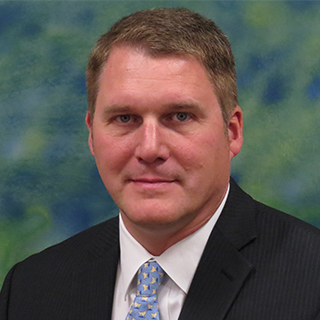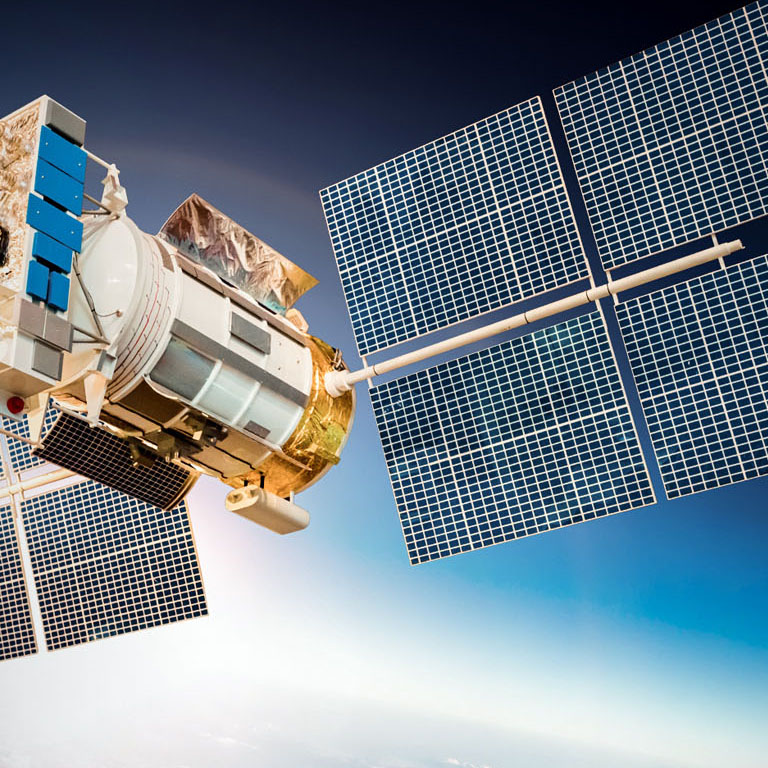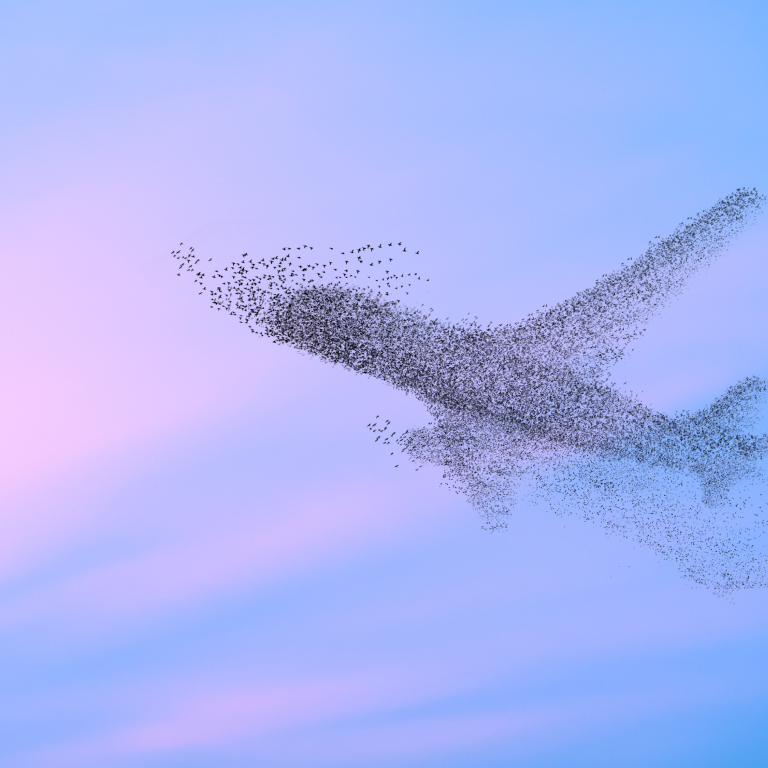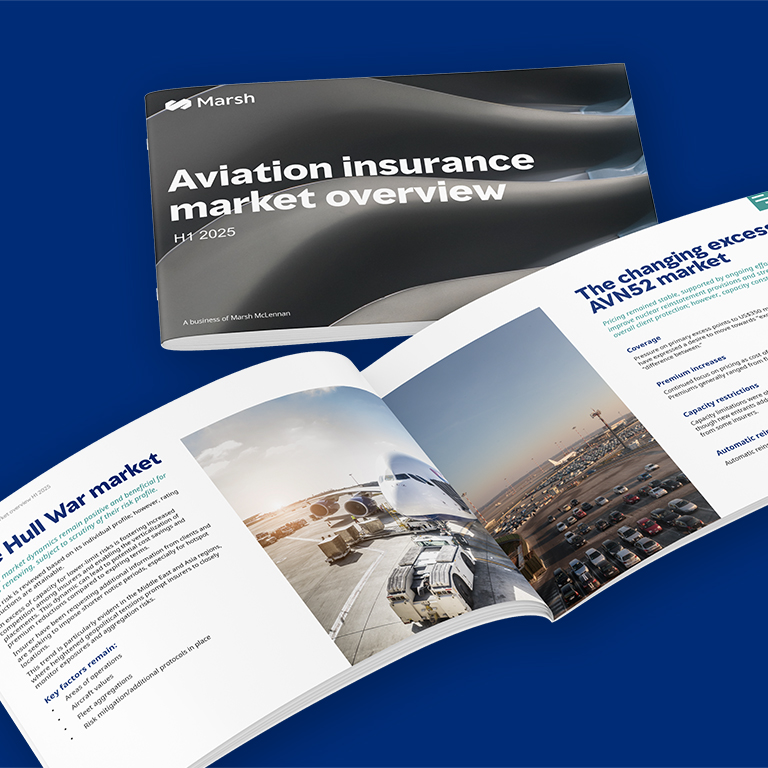
Brian Glod
Global Head, Aviation & Space
-
United States
Many sectors within the industry leverage technology to fuel growth, while others face ongoing challenges from COVID-19, new regulations, and structural cost reductions.
The changing risk landscape presents new opportunities and threats for organizations across the industry – from airlines, general aviation, aerospace, and space to leasing and finance. Specialist knowledge of the aviation and space insurance markets along with sound risk management strategies are crucial to managing the evolving risks the industry faces and seizing opportunities for growth and resilience.
Our team of aviation and space specialists will work with you, providing clear, considered advice, to develop a sound insurance and risk management strategy. Our data and analytics capabilities allow a deeper understanding of your program in the context of the wider market. Our extensive experience with aviation and space claims means that we can handle your largest and most complex claims through to your low severity claims and help protect your best interests with insurers.
Working together, we can help better position your organization to enhance its resilience, maximize its recoveries, and lower its cost of risk.

02/03/2026
Today, space infrastructure underpins the essential functions of modern society: secure communications, intelligence gathering, navigation systems, and the logistics networks that keep the global economy moving.

11/26/2025
Our exclusive two-day event features leading thinkers, interactive workshops, and invaluable networking opportunities designed to help your organization strengthen resilience and seize new growth opportunities.

08/13/2025
The first half of 2025 has brought geopolitical tensions, rising costs, and shifting capacity challenges to the aviation market.
Find out how our specialist team support with innovative insurance and risk management solutions.
Damage policies do not typically cover anything that comes below the deductible/excess level or malicious acts. Malicious acts can include anything that was intentionally done to cause damage to an aircraft, ranging from pilot suicide to employee sabotage. Insurers have considered the shooting down of an aircraft (even if it wasn’t intentional) to be a malicious act. To cover these, a separate war policy is usually needed.
This is simply the formal name for a property and casualty insurance policy covering damages that affect the physical body of an aircraft.
The coverage line addresses the costs directly stemming from the damage the hull has sustained, as well as the labor necessary to repair the craft. In some (but not all) cases, hull insurance will extend to equipment within the craft that is not affixed to it, such as onboard navigation tools.
This does not cover bodily injury to passengers or any third party damage done by operating the aircraft, as these losses are covered by liability insurance.
Requests for liability limits typically vary from a low of US$5 million to US$100 million or more depending on the exposure. Non-owned aircraft liability insurance provides coverage in the event a corporation becomes legally liable for bodily injury (including passengers) and property damage to third parties as a result of a loss involving a corporation’s or employee’s use of a non-owned aircraft. Liability coverage would be provided to the corporation as long as the aircraft is not partly or wholly owned or registered in the name of the corporation, its subsidiaries, or related parties.
All businesses within the aviation and space industry should consider comprehensive coverage as a cornerstone of effective risk management, including:
Due to the high risks and costly investments, aviation and space businesses require unique coverage to fully protect all stakeholders and property.
When considering coverage, aviation and space companies need to understand the risks to their own assets and their unique day-to-day operations. However, airlines and general aviation businesses will also need:

Global Head, Aviation & Space
United States

Practice Leader, Aviation & Space, Canada
Canada

Practice Leader, Aviation & Space, Asia
Singapore

Global Chairman, Aviation & Space
United Kingdom

Practice Leader, Aviation & Space, Continental Europe
France

Global Head of Space Projects
Singapore

Practice Leader, Aviation & Space, US
United States